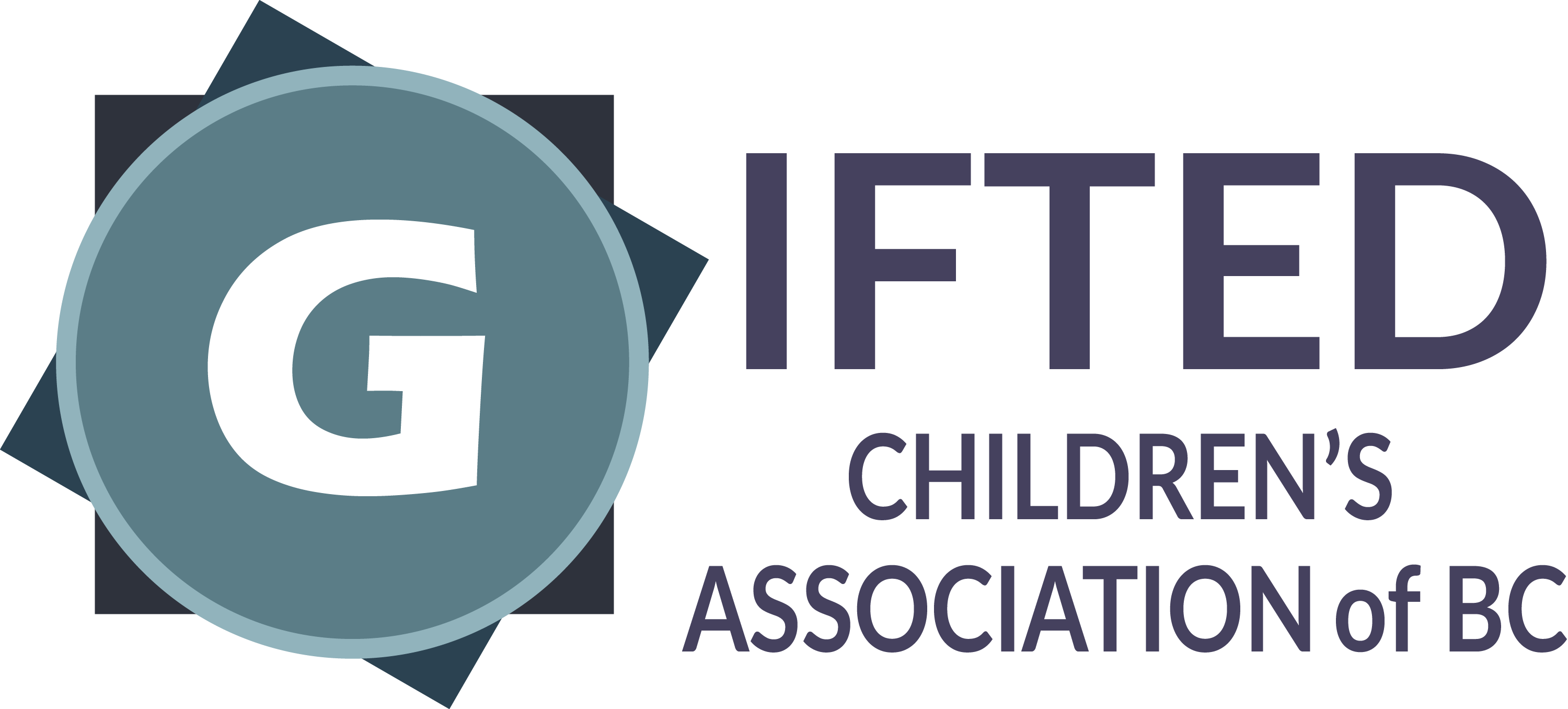By Maureen McDermid
The new BC curriculum, what’s in it for gifted learners, their teachers and families?
When considering the new curriculum with respect to gifted learners, it’s fair to ask, “What’s in it for these learners?” and “What’s in it for us as their teachers and parents?”.
Let’s consider a quick review of the range and diversity of indicators we rely on to recognized gifted learners. Considering literacy, we note evidence of well-developed vocabularies, beginning to read earlier than typical learners, attraction to, use of and understanding of subtleties of language, attraction to topics and themes more generally of interest to older learners. In numeracy, early recognition that numbers come in different forms, reflect different relationships, basic concepts of equality and patterning, that numbers can be decomposed into smaller parts, and preference for problem solving over calculation. In approaches to learning they often reveal an interest in experimentation or devising different ways of accomplishing tasks, put seemingly diverse ideas together in ways that are not usual or obvious. They are curious and questioning, often show an unusual sense of humour, can retain a great deal of information and resist rote learning and regurgitation of facts. Not to suggest that typical learners do not demonstrate these traits but it is the intensity with which these attributes are present in gifted learners that makes them notable and requires us to respond in ways that engage and support them in learning in their zone of proximal development.
The question then is, specifically, what aspects of the new curriculum help us respond to these attributes?
Personalized Learning
Contrary to much that has been discussed and written, this does not mean an individual learning program for each child. It refers to acknowledging the interests and passions that students bring to classrooms. It occurs when teachers work from the following three aspects in regard their students when designing learning experiences. It refers to the rate at which students learn and we know that all do not learn at the same rate. It refers to the environment for learning and we know that there are both overt and subtle aspects to the learning environment that we construct that responds to the needs of learners and that one size does not fit all. And because students, as humans, have both distinct uniqueness and collective similarities, it refers to the varying ways of knowing and of learning. The change in attitude about how we plan for and deliver this curriculum in our classrooms, one that emphasizes flexibility to include all learners, is perhaps the most promising aspect of this curricular change.
Educators of the gifted have long studied and accessed these three ideas to adjust learning for their students. They have adjusted the pace of learning in response to the advanced knowledge and speed of integration of new information of students. They have sought environments where there is exposure to older students, adult mentors, and like-minded learners as well as acceptance of unique ideas and interests not generally found in the learner’s age peers. They have structured choice in the way learning happens, what aspect of the topic is learned and how understanding is demonstrated.
While personalization as described above benefits all learners, it is recognized that for gifted learners, these factors are key to engagement and support of their needs and respond to the indicators that reveal their gifts.
Core Competencies and a new Instructional Model
These two features of the new curriculum signal a significant move toward the emerging needs of learners in the 21st century.
Three ‘Core Competencies’ have been identified and are central to the way we view the needs of individuals who will move from schools into communities of the future in BC. The Core Competencies are the intellectual, personal, and social skills that all students need to develop for success in life beyond school. BC has identified three Core Competencies – Communication, Thinking and Personal and Social Competency as essential for all learners, https://curriculum.gov.bc.ca/competencies . All students, regardless of their academic abilities, need opportunities to learn, refine and extend these skills. While many gifted students demonstrate an innate capacity to think critically and /or creatively, the fact that thinking is recognized as crucial and will receive increased attention will support a move away from focus on fact recall and regurgitation to the use of information to make decisions, solve problems and demonstrate understanding. All students need as much support in developing communication and personal and social skills as we can provide. Again, an emphasis on these skills, building the environment in which they are taught and where opportunities to practice with guidance are available, will support our gifted learners.
The new curriculum features a model for teaching and learning described as ‘Know (content/essential topics), Do (be able to use the knowledge competently through skill development, strategies and processes), Understand (the Big Ideas, generalizations and principles that embed the concepts) as the method of instruction across all disciplines. This approach acknowledges a belief that learning that lasts starts with concept development and moves to demonstrations of competency. It supports the predispositions of gifted learners to seek meaning, connect with their already well developed base of knowledge and experiences and satisfy their need to ‘go deeper’ and ‘broader’ into the essential learnings. Teachers of the gifted have long advocated for learning experiences built on Big Ideas rather than discrete facts and celebrate this aspect of the new model!
While the new curriculum is not a curriculum that addresses all the needs of gifted learners, it is built on many of the attributes of learning that teachers of the gifted have advocated for and provided for their students over the past 40 years. This is a good thing!
Visit the Ministry’s website at:
https://www.curriculum.gov.bc.ca/




